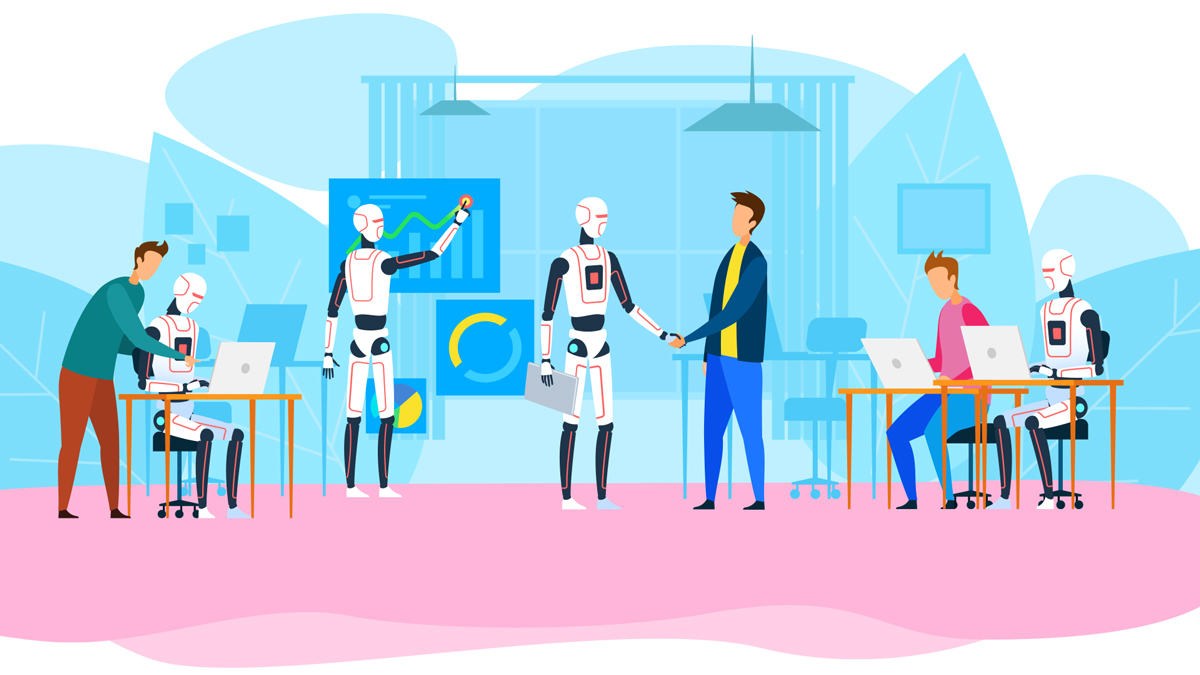Table of Contents
ToggleThe introduction of Artificial Intelligence (AI) into the dynamic arena of Human Resources has ushered in a new era of efficiency and data-driven decision-making. While the advantages of AI in HR are tremendous, ethical questions have arisen, particularly about the delicate balance between automation and the human touch. This paper digs into the complex ethical terrain of incorporating AI into HR practises, emphasising the importance of maintaining the fundamental human connection even in the digital age.
The Advantages of AI in Human Resources
Artificial intelligence (AI) has transformed human resources by automating routine jobs, optimizing processes, and translating data into actionable insights. However, inside this shift comes a delicate ethical balance – the problem of effortlessly integrating AI while maintaining the crucial human touch, AI in HR has several benefits, such as quick resume screening, unbiased candidate evaluation, and predictive analytics for employee performance. These advances save time, money, and improve decision-making processes. However, ethical concerns arise when these benefits jeopardize the empathic and compassionate qualities normally associated with HR roles.
Maintaining the Essence of Human Interaction
Incorporating AI should strengthen, not weaken, the human connection within HR. Employees needs HR assistance amid critical life events and problems. It is critical to strike a balance between the frigid efficiency of AI and the warmth of human empathy. Human resource specialists must be available for meaningful relationships and provide empathy, compassion, and emotional intelligence. By utilizing AI for repetitive activities, HR personnel can focus on building true human interactions, displaying understanding, compassion, and emotional intelligence. which are critical for employee well-being.
Minimizing Discrimination: Upholding Fair Treatment
Addressing biases is one of the most difficult ethical concerns in AI-driven HR. AI algorithms are only as accurate as the data on which they are trained. HR AI tools must be rigorously monitored and updated to prevent discrimination. Regular audits of algorithms and data sources are required to assure fairness and equal opportunity for everybody, regardless of background or circumstances.
Transparency and Accountability: A Responsibility Even on Their Day Off
Transparency is critical in AI-driven HR operations. Employees have the right to know when AI is influencing career decisions. Human resources departments must explain explicitly about the data collected, methods used, and ethical norms followed. This transparency is a responsibility that extends even on their days off, building an organisational culture of trust and accountability.
Investing in Employee Skill Enhancement: Shaping a Promising Tomorrow
HR workers must be trained in AI technologies in order to efficiently integrate AI without sacrificing the human touch. HR professionals who improve their digital literacy may use AI tools more wisely, ensuring that the technology aligns with the organization’s values and employee well-being.
As AI automates processes, HR must prioritize employee upskilling and reskilling. Empowering the workforce to cooperate effectively with AI systems is required for ethical AI implementation. Investing in continuous learning programmes helps that employees acquire the skills required for the changing workplace, creating an adaptation and growth culture.
AI as a Supportive Tool, not a Replacement
AI should be considered as a beneficial tool that assists rather than replaces HR personnel. Artificial intelligence frees up time for HR professionals to focus on strategic initiatives, mentorship programmes, and building a healthy work environment by automating routine chores. This collaborative approach leverages the power of technology while adhering to HR’s human-centric ideals.
Transformative Applications: How AI is Revolutionizing HR Functions
Artificial intelligence has made considerable inroads into a variety of human resource activities. Here are some examples of how artificial intelligence is being applied in the sector of human resources.
Resume Screening and Candidate Matching
Artificial intelligence algorithms can analyze resumes and job descriptions to match people with the best opportunities based on their talents, certifications, and experience. This saves time and makes the recruitment process more efficient.
Chatbots for Recruitment
Chatbots powered by artificial intelligence can communicate with job seekers by answering basic inquiries, organising interviews, and even doing preliminary assessments. This improves the applicant experience while freeing up HR personnel to focus on more important duties.
Employee Onboarding
Artificial intelligence-powered onboarding platforms can give personalized training schedules, team member introductions, and answers to new workers’ questions, resulting in a smoother and more engaging onboarding process.
AI Performance Management
AI solutions may evaluate employee performance by analysing data from numerous sources and providing insights into productivity patterns, areas for improvement, and personalised skill development recommendations.
Employee Engagement Surveys
Artificial intelligence-driven surveys can analyze employee responses and sentiments, providing HR with actionable insights to improve workplace satisfaction and engagement, Employee feedback from multiple sources, such as surveys and social media, can be processed by artificial intelligence-powered sentiment analysis tools, giving HR with important information into employee satisfaction, concerns, and general sentiment.
Learning and Development
AI-powered platforms can identify worker skill shortages and offer personalised training programmes for employees. Individual learning styles are accommodated by these platforms, ensuring optimal skill development.
HR Analytics and Reporting
Artificial intelligence can process massive volumes of HR data, revealing specific information about workforce demographics, turnover rates, and productivity trends. This data-driven strategy assists HR professionals in making sound decisions.
These examples showcase the diverse applications of artificial intelligence in HR, improving efficiency, enhancing employee experiences, and aiding HR professionals in making data-driven decisions.
Conclusion
The collaboration between Artificial Intelligence and the human touch in HR is not a competition. Organizations can establish a happy workplace where the efficiency of artificial intelligence complements, rather than reduces, the emotional and personalized relationships that define HR by recognizing the merits of both parts. HR professionals who embrace this synergistic approach may lead their organizations into a future where technology complements the human touch, resulting in a workplace that is not only efficient but also truly caring and empathetic.
